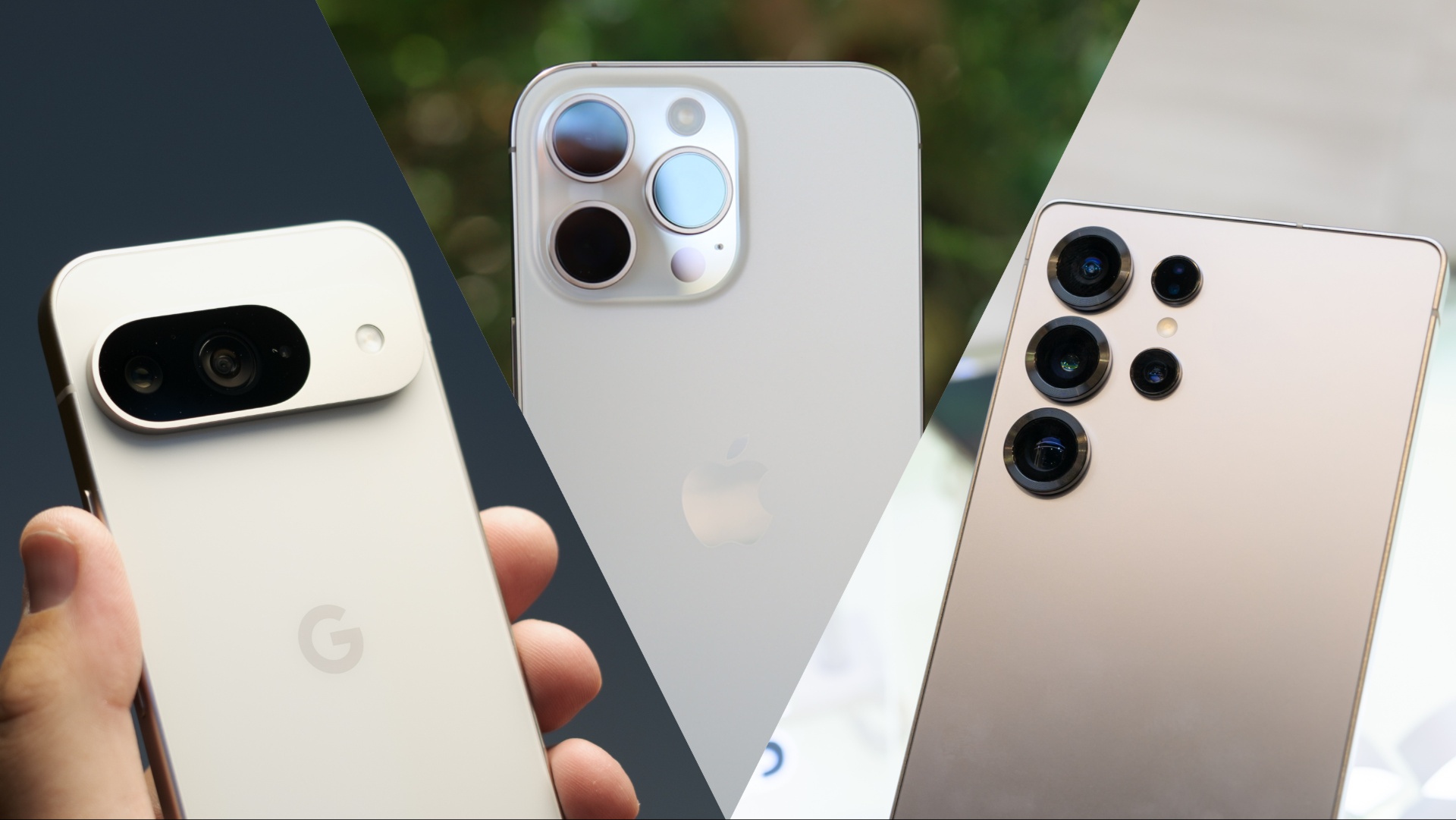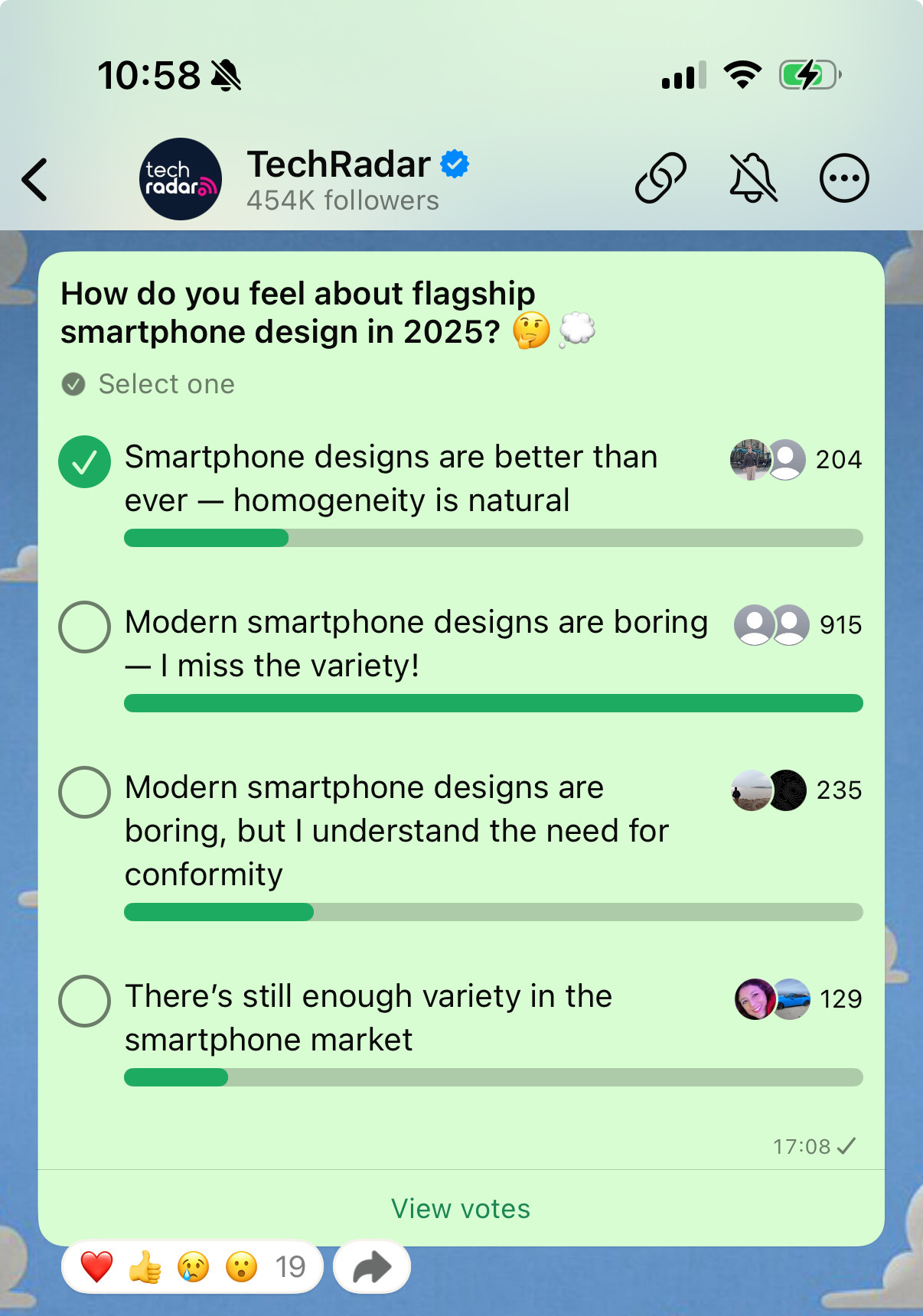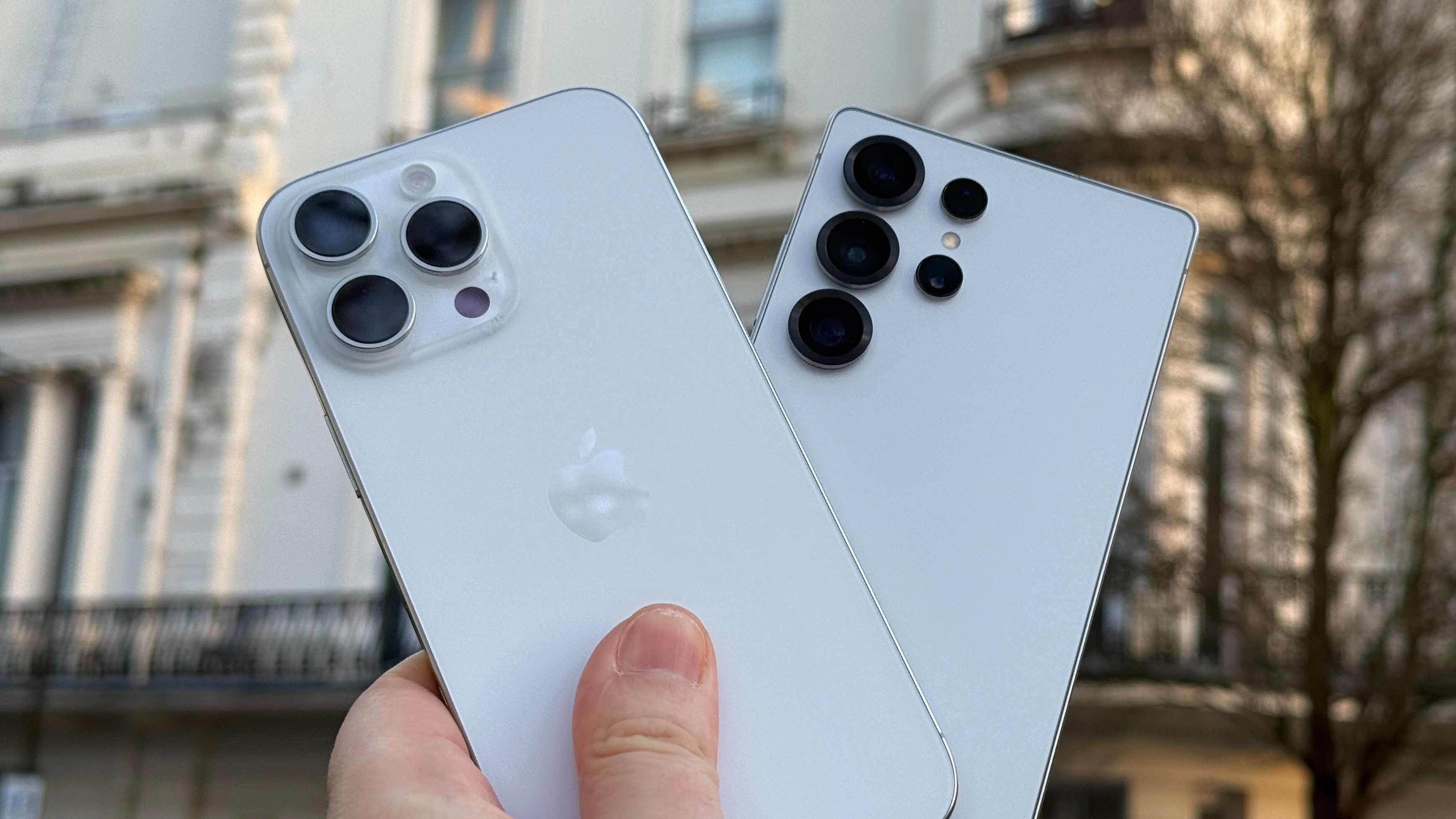
Not too long ago, our best phones guide featured models of all shapes and sizes, from the tablet-like Samsung Galaxy Note to the brightly colored iPhone 5C.
These days, however, flat metal sides, gently rounded corners, and muted, industrial colorways are the order of the day, with practicality and understated style seemingly prioritized over "look at my new phone!" personality.
But is this homogeneity a bad thing? Despite their plainness, today’s best (and best-selling) phones are objectively superior devices to their more characterful predecessors, and the best foldable phones (think the Galaxy Z Flip 6) are ready and waiting for those whose favor fun over conformity.
To find out how you, our readers, feel about modern smartphone design, we published an article back in February encouraging you to have your say.
We ran a poll in the TechRadar WhatsApp channel alongside that article, and a whopping 1,483 of you responded to the question ‘How do you feel about flagship smartphone design in 2025?'. Here are the results:

As you can see, an overwhelming majority of respondents – 915 (62%) – responded with the answer ‘Modern smartphone designs are boring – I miss the variety!’. A further 235 (16%) selected the third option – ‘Modern smartphone designs are boring, but I understand the need for conformity’ – meaning 78% of respondents feel negatively about the state of smartphone design in 2025.
Only 204 respondents (14%) think that smartphone design is better than ever, while an even lower 129 (8%) think there’s still enough variety in the smartphone market. Suffice it to say, that won’t provide happy reading for manufacturers like Apple, Samsung, and Google.
Get daily insight, inspiration and deals in your inbox
Sign up for breaking news, reviews, opinion, top tech deals, and more.
For almost every major brand, smartphone sales have been steadily declining since 2021 (via ICIS), and it’s clear that innovative AI features haven’t yet proven the industry-saving development it was clearly hoped they would be.

That said, it’s hard to point the finger at boring smartphone designs as the sole – or even primary – reason for this downward trend.
Consumer buying patterns have changed; it’s no longer feasible, or even advisable, to replace your smartphone every two years, with most consumers now choosing to do so after four or five.
Even the best cheap phones will now remain supported with software updates for up to seven years, and their chipsets and batteries are advanced enough to see out that period with ease. Sure, modern smartphones are boring, but they’re extremely practical and fit for purpose – does it really matter that they all look the same?
It’s a question that will no doubt be playing on the minds of company executives across the industry. Apple, for instance, has come under fire for sticking with the same “boring” iPhone formula for too long, but will it risk messing with its golden goose for the sake of variety? The latest iPhone 17 rumors suggest it will, though it’s hard to believe that a slightly more adventurous camera module design will spark a tidal wave of iPhone upgrades.
As our poll demonstrates, consumers are clamoring for something new – but an element of nostalgia is undoubtedly at play here.
What do you think smartphone manufacturers should do to spice up the stagnating smartphone market? Let us know in the comments.
You might also like

Axel is TechRadar's UK-based Phones Editor, reporting on everything from the latest Apple developments to newest AI breakthroughs as part of the site's Mobile Computing vertical. Having previously written for publications including Esquire and FourFourTwo, Axel is well-versed in the applications of technology beyond the desktop, and his coverage extends from general reporting and analysis to in-depth interviews and opinion. Axel studied for a degree in English Literature at the University of Warwick before joining TechRadar in 2020, where he then earned an NCTJ qualification as part of the company’s inaugural digital training scheme.
You must confirm your public display name before commenting
Please logout and then login again, you will then be prompted to enter your display name.